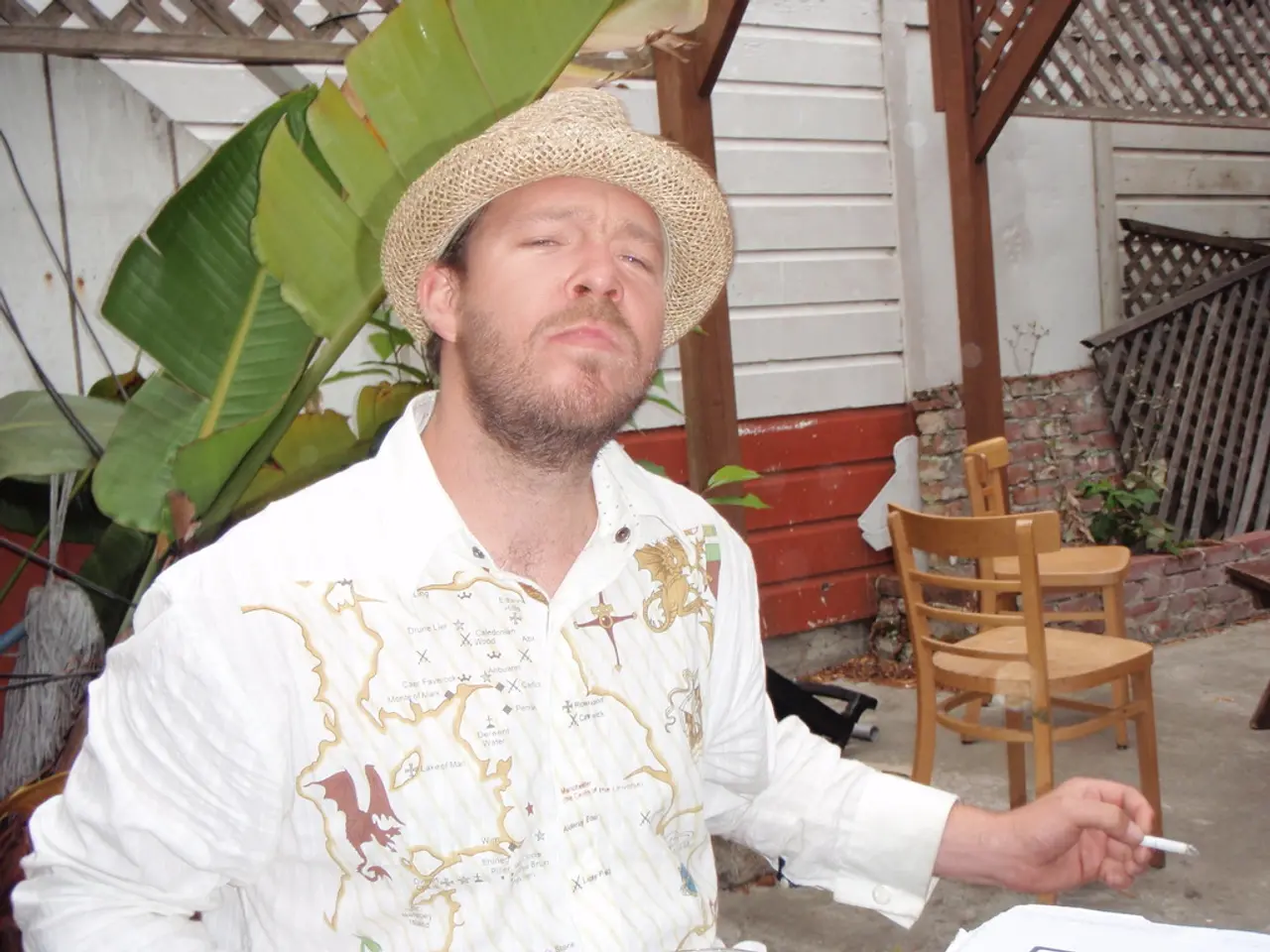Lighting Up the Courtroom: The Controversial Cannabis Pioneer's Legal Battle
Court Hearing for Hemp Innovator over Cannabis Club Permits - Court proceedings for cannabis club licensing - Pioneers of hemp face legal challenges
He's known as a self-proclaimed hash maestro, but Wenzel Cerveny, the founder of Hanf.com, finds himself on the wrong side of the law. His "Chillout Club" application was rejected, and now he's standing trial for alleged illegal cannabis trading and importation in Munich District Court, starting today at 1:00 PM.
Cerveny's troubles stem from before the nationwide partial legalization of cannabis, taking effect on April 1, 2024. Bavaria, home to his Aschheim residence near Munich, has turned a deaf ear to his pleas, and a children's playground was even placed in front of his intended club location to block his plans. Aschheim didn't want to be known as "Hashheim."
The indictment details the sale of unprocessed cannabis flowers and hashish, with CHC content below the 0.2% limit, during the pre-legalization period. Cerveny, however, sees himself as a collateral damage victim in a political struggle. accused of being "pursued for ideology," he views the justice system as the "extended arm" of an ideological stand against cannabis.
He's pledging for acquittal, damages, and even threatens a damages lawsuit. Cerveny believes he's serving as the symbolic case for a malfunctioning system, arguing that the judiciary is failing to protect the youth and is instead destroying livelihoods. In 2019, goods worth approximately 250,000 euros were seized during eight raids in several of his branches, and he demands the immediate return of these confiscated items.
The trial will span over a total of five days. Despite extensive online searches, the current status of the trial remains elusive.
- In the midst of the trial, Wenzel Cerveny, the founder of Hanf.com, advocates for a community policy that supports vocational training in the field of science, alongside workplace-wellness, health-and-wellness, fitness-and-exercise, and mental-health therapies-and-treatments, to foster a more balanced and holistic work environment.
- Cerveny further insists on the necessity of proper nutrition education, including the benefits of alternative substances like CBD, to promote overall well-being and prevent potential health issues, especially in light of the current disagreement regarding the legality of cannabis.
- As politics and policy-and-legislation continue to shape the future of cannabis, Cerveny's case serves as an example of the impact war-and-conflicts can have in shaping community dynamics and influencing policy decisions.
- The controversy surrounding Cerveny's case has shed light on general-news issues, generating discussions about the decriminalization of cannabis and the moral implications of criminalizing substances like his.
- Aside from the cannabis industry, Cerveny's trial has stirred interest in the sports world, with some speculating on the potential for sports-betting opportunities on the outcome of the trial.
- Amidst the ongoing trial, Cerveny maintains an optimistic outlook, viewing it as an opportunity to fostering open dialogue about vocational training programs geared towards the growing cannabis industry and focusing on healthcare, mental health, and nutritional wellness.
- In the courtroom, Cerveny argues that by denying his Chillout Club application, Aschheim failed to uphold the principles of justice, democracy, and freedom of enterprise – principles that are essential for a thriving community.
- As the trial effects unfold, many observe the potential implications for the future of the cannabis industry in both Bavaria and Germany, and Cerveny stands as a symbol of the ongoing struggle for legalization and equitable community policies.








